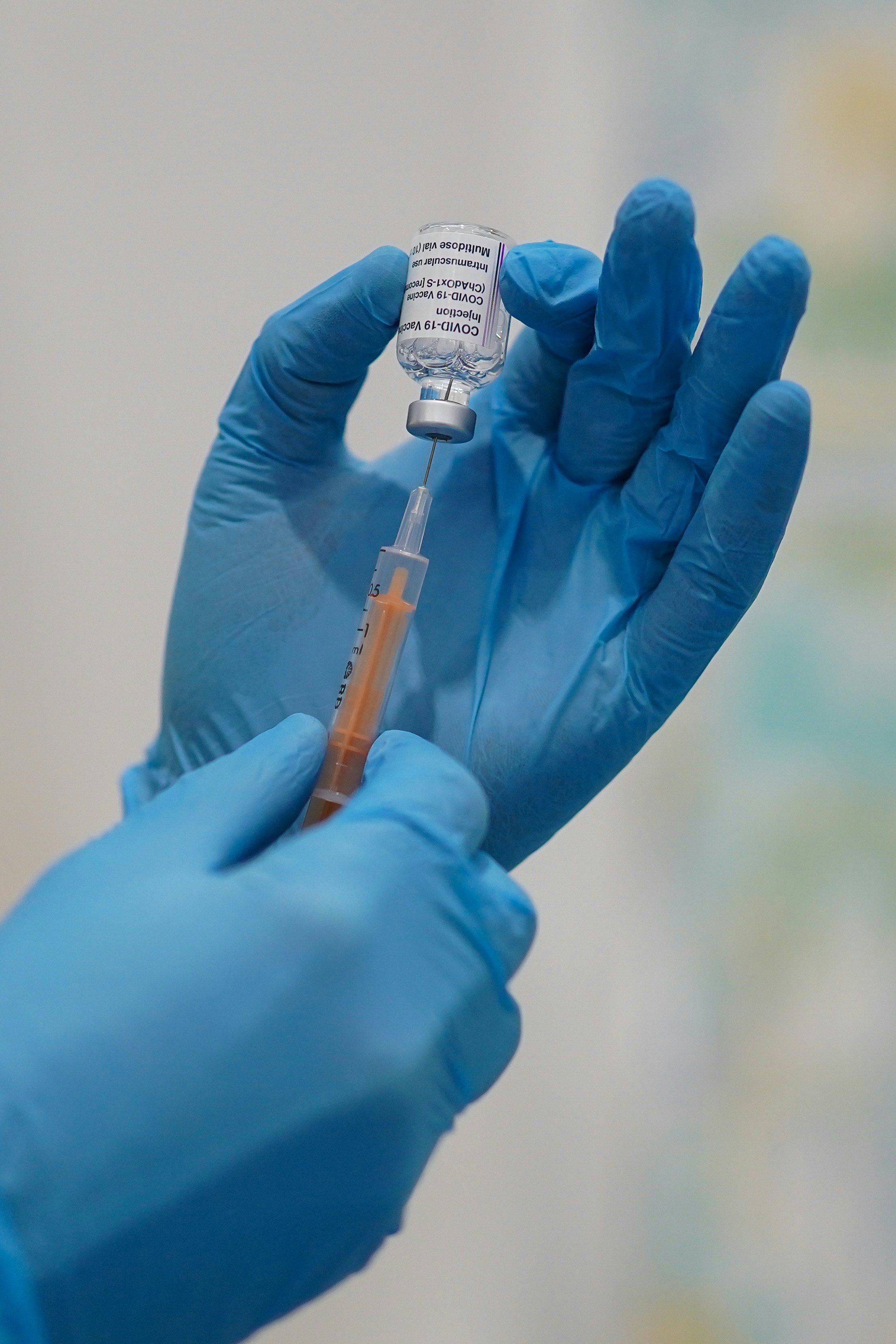
As states continue to roll out COVID-19 vaccines to those eligible, nearly everyone is in agreement that doses are too valuable to waste. But figuring out how to distribute leftover doses has proved somewhat complicated. As a result, many counties have launched COVID-19 vaccine "no waste" lists to help save leftover doses from ending up in the trash since both the Moderna and Pfizer/BioNTech vaccines must be injected within a certain timeframe after being thawed from their storage temperature.
Indeed, no one wants doses of COVID-19 vaccines to be thrown away, but there's been some debate over how leftover doses should be distributed. Take the case of a Texas doctor who was charged with stealing a vial of COVID-19 vaccine after he rushed to administer leftover doses before they expired. Or the accounts of so-called "vaccine chasers" and "line jumpers," many of whom are reported to be young and otherwise healthy individuals who simply gamed the system to obtain a highly-coveted COVID-19 vaccine. At the heart of the matter appears to be the question of whether leftover doses should be reserved for frontline essential workers and older adults with pre-existing conditions or should they be doled out first come, first serve?
To help prevent the waste of valuable vaccines, many counties and distribution sites have resorted to establishing "no waste" or "back up" lists of individuals willing to drop everything and obtain a leftover vaccine dose at a moment's notice. But even these standby lists haven't been without controversy.
A vaccine waitlist in Kittitas County, Washington, was closed at the beginning of February after registrations surged to more than double the county's total population. That vaccine waitlist was later re-opened with a maximum of 6,500 slots and a note that it was "not for the general public," but rather "intended for individuals who will be identified in Washington State’s prioritized allocations."
A "no waste" vaccine list quietly opened by public health officials in Columbus, Ohio was closed after just two days. During that time, 250 people reportedly signed up without having to be vetted to ensure eligibility and at least 50 people obtained vaccines, according to WBNS. Columbus Health Commissioner Dr. Mysheika Roberts told the news outlet it had been "a misstep" to open the list to the public without any eligibility criteria and without clearly advertising how to get on it. Roberts said the city plans to reopen the list sometime in the future with new criteria. Residents can watch for updates on the "no waste" vaccine list on the city's website. Elsewhere in Ohio, a "no waste" waitlist serving Tuscarawas County was closed to the public in mid-February after the state's Department of Health announced plans to launch a central vaccine registration website.
In Indiana, the Vanderburgh County Health Department has opened a "COVID-19 Back Up List," but noted any leftover doses available will be distributed to listed individuals based on their age and pre-existing conditions. "This will not be a first come, first serve," the county agency noted.
Other counties have opted to randomize their selection of who receives leftover doses. In January, Nashville Health in Tennessee announced it would open a daily COVID-19 vaccine standby list to anyone 18 or older who felt they could show up for vaccination within 30 minutes of being called. According to tweets from the agency, the standby list would be "cleared each day" and individuals would be "randomly selected."
CVS, which has begun distributing COVID-19 vaccines in a number of states, has also crafted a waitlist of sorts to ensure leftover doses don't go to waste. That list, however, doesn't appear to be open to public sign-ups at this point in time. Rather, a spokesperson for CVS tells Romper its pharmacy teams maintain patient profiles that can help them identify eligible individuals.
"In the event of unused doses in our pharmacies, our pharmacy teams will evaluate how to most efficiently vaccinate eligible individuals with remaining doses," Matt Blanchette, manager of retail communications for CVS Pharmacy, says. "This includes our own essential frontline workers, and outreaching to eligible patients in their communities, as our pharmacies maintain patient profiles with information that can help identify who is eligible to be vaccinated. We also empower our pharmacy teams to use their judgment to ensure that no vaccine goes to waste."
At the moment, states continue to regulate their own individual distribution of COVID-19 vaccines, meaning there's no national standby list. Similarly, there's no universal way to get yourself on a "no waste" list. What works in one county may not work in another one state over. Still, those curious about "no waste" vaccine lists will likely want to start with a call to their county's health department, followed by calls to their nearest vaccine distribution site and any local pharmacies administering the vaccines.
In Las Vegas, Nevada, at least one resident told local CBS affiliate KLAS they'd managed to get on vaccine waitlists at a local Walmart and Sam's Club after calling the retailers' pharmacies directly. Other residents told the news outlet they'd had luck securing spots on "no waste" waitlists by showing up to Cashman Center, a central vaccine site, and either waiting around for leftover doses or asking to be put on a callback list in the event leftovers become available. A Utah resident reported obtaining a leftover vaccine dose via a similar method on Twitter, signaling these strategies may work in other cities as well.
0 comments:
Post a Comment